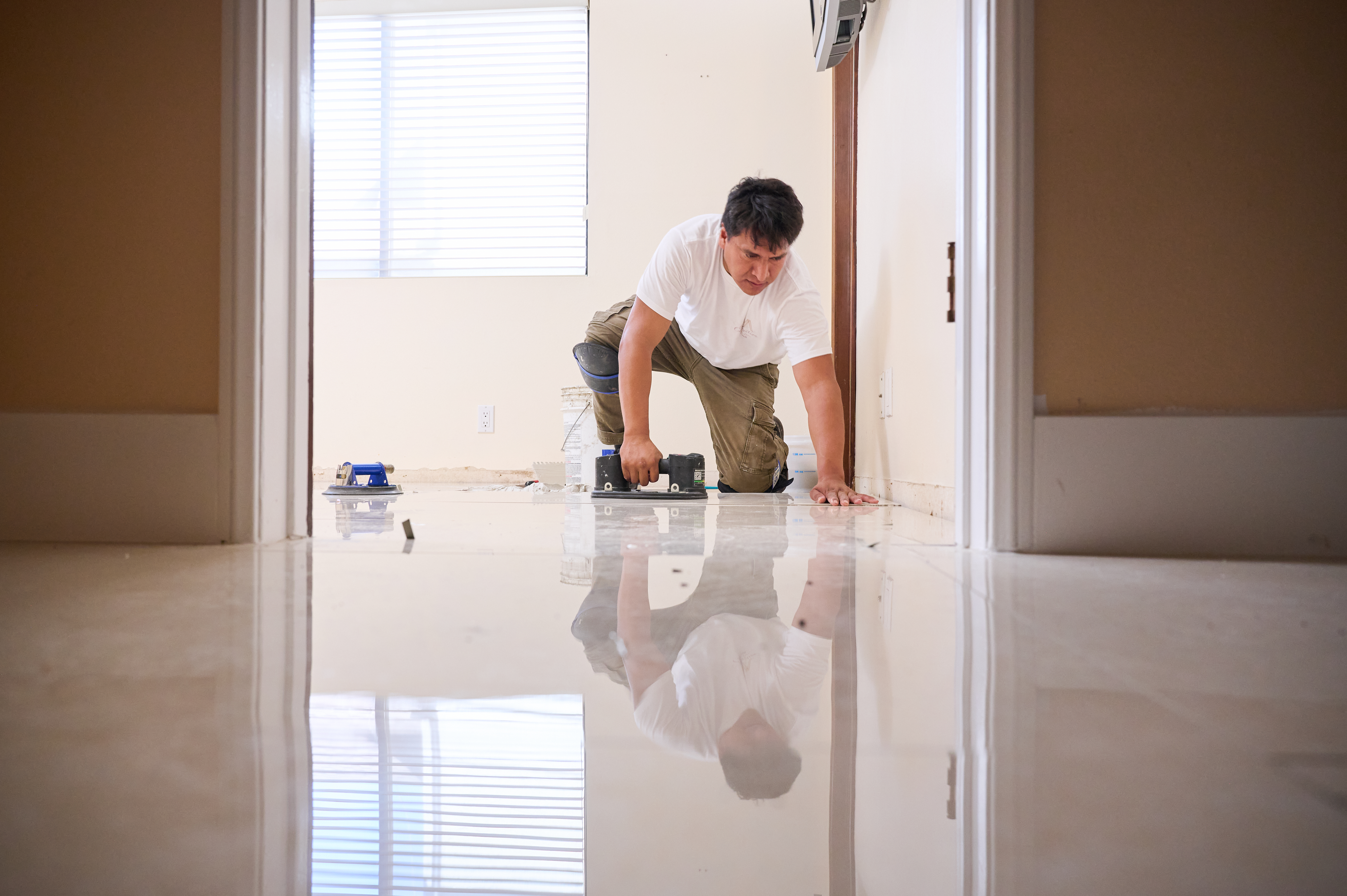
Laminate is a solid choice for many homes because it's durable and budget-friendly. Check out this guide to learn about laminate flooring installation costs.
Installing a new floor in New York, NY costs $2,822 on average, but can range between $1,481 and $4,326, depending on the room size and type of flooring.
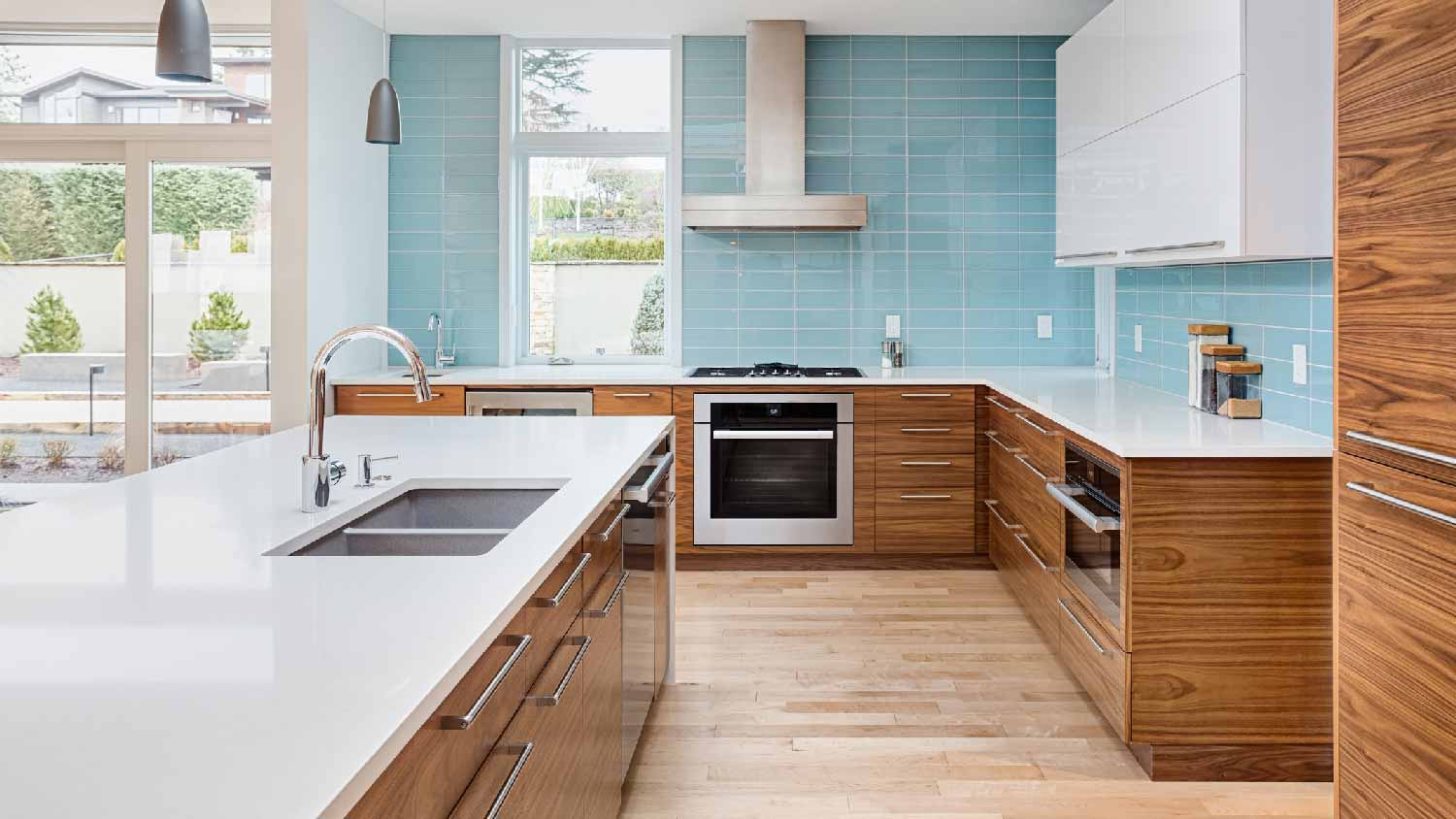

A midrange flooring installation project in New York costs $8 to $15 per square foot, with higher prices for hardwood installations and in buildings with access challenges.
New York flooring installation professionals charge $75 to $150 per hour, with union or highly skilled installers at the top of this range.
Installing hardwood on staircases can cost as much as $300 per step, depending on nosing, balusters, and other details.
Building access logistics in New York high-rise apartments can increase costs by 10% to 20%.
Flooring installation in New York City, New York costs $2,822 on average, ranging between $1,481 and $4,326 for most homeowners. The final price depends on your apartment or home size, material choice, and building-specific requirements. The constraints typical of NYC living can further add to costs, like dealing with narrow stairwells, strict co-op board rules, and limited elevator access.
In high-cost cities like New York City, New York, both materials and labor prices tend to be higher. Potential subflooring issues in century-old structures can introduce unexpected repair costs to your renovation project, too.
When ordering flooring materials, first measure the square footage of the floor space. You may need to add an extra 10% for wastage during the installation process. A flooring pro can provide guidance for more challenging layouts or stairs.
New flooring costs an average of $8 to $15 per square foot in New York. So, the larger the project, the higher the installation cost will be.
You may receive a discount on the rate per square foot for larger projects, while some companies may charge a higher flooring cost per square foot for small jobs to meet their minimum project cost requirements.
| Room Size in Feet | Square Footage | Average Cost |
|---|---|---|
| 10x10 | 100 | $1,250 |
| 10x12 | 120 | $1,500 |
| 12x12 | 144 | $1,800 |
| 12x14 | 168 | $2,100 |
| 14x16 | 224 | $2,800 |
| 16x16 | 256 | $3,200 |
| 18x18 | 324 | $4,050 |
| 18x20 | 360 | $4,500 |
| 20x20 | 400 | $5,000 |

The price of your new flooring depends heavily on the type of material you choose. Generally speaking, natural materials are pricier, while synthetic materials are more affordable. For instance, hardwood flooring costs between $6 and $25 per square foot, while linoleum flooring costs $3 to $12 per square foot.
Of course, the type of flooring material that’s best for your home depends on the area you’re putting it in, the amount of traffic it gets, whether you have kids or pets running around, your local weather and climate, and your aesthetic.
| Type of Flooring | Average Cost per Square Foot | Lifespan (Years) | Pros | Cons |
|---|---|---|---|---|
| Tile | $15–$20 | 75–100 | Highly durable and waterproof. Easy to clean. | Can chip and crack. Can be difficult to install. |
| Hardwood | $6–$25 | 30–100 | Can be resurfaced and refinished. Lots of variations to choose from. | Susceptible to damage from water and moisture. Requires some maintenance. |
| Engineered wood | $4.50–$16 | 20–30 | Looks like hardwood and is more resistant to moisture. Can be refinished. | Not entirely moisture resistant. Can only be refinished once or twice. |
| Stone | $6–$20 | 50–100 | Very durable and low maintenance. Sustainable. | May require structural reinforcement due to weight. Difficult installation. |
| Carpeting | $2–$8 | 5–15 | Comfortable to walk on. Affordable and easy to install. | Difficult to clean. Stains easily and absorbs odor. |
| Laminate | $3–$9 | 10–30 | Affordable alternative to hardwood. Easy to install. | Not moisture resistant. Difficult to repair, and can’t be refinished. |
| Vinyl | $3–$12 | 10–25 | Affordable and durable. Can mimic other materials like hardwood and stone. | Can become discolored and wear over time. |
| Linoleum | $3–$12 | 20–40 | Recyclable and made from natural materials. Affordable and long-lasting. | Needs to be sealed. Not as durable as other materials. |
| Polished concrete | $2–$16 | 50–75 | Very durable with a long lifespan. Low maintenance and affordable. | May need structural reinforcement due to its weight. Must be properly sealed. |
| Bamboo | $2–$20 | 10–30 | Sustainable and highly durable. | Susceptible to moisture damage. Shorter lifespan than other materials. |
| Cork | $5–$19 | 20–40 | Low maintenance and allergy-friendly. | Not as durable as other flooring. Susceptible to moisture related expansion and contraction. |
Your flooring installation company may charge an additional rate, averaging $75 to $150 per hour, to remove furniture from the room or home before installing the floors. For condos and co-ops, building rules about elevator reservations or insurance can add costs. Save money on your flooring installation costs by moving furniture and other objects prior to the project’s start date.
Removing old flooring costs $1.50 to $3.50 per square foot, depending on the type of floor and how it was installed. For example, tile removal costs can range from $4 to $7 per square foot, while removing carpet that is nailed or stapled to the floor costs around $1 to $2.50 per square foot.
Subflooring replacement costs $3 to $10 per square foot. Subfloors help support your flooring, whether you choose carpet, tile, or hardwood. You need this base layer to be in good condition, so if your subfloors are too weak or have water damage, you’ll need to repair or replace them before installing new flooring.
If your floor type needs underlayment, it will add $0.50 to $5 per square foot to the flooring installation cost. Not all floors need underlayment, but you likely need it if you install carpet or laminate flooring.
Installing flooring on stairs costs $11 to $160 per step, depending on the type of flooring you choose. The cost of adding carpet to stairs falls on the lower end of the scale because it’s easier to install over the curves and ridges of steps than a rigid material like hardwood, which may cost up to $300 per step due to the complexity of installation and the higher cost of the material.
If your flooring pro detects mold, removal is crucial before laying down new flooring. Mold remediation costs $10 to $25 per square foot. If a flood or leaky plumbing left mold or water damage under the flooring, you’ll need to factor in the additional costs for a local mold removal service to keep your family safe. Hidden moisture under flooring in older buildings in New York is a common cause of extra cost.
Finishes, like polyurethane, urethane, or wax, cost $0.85 to $7 per square foot. Consider adding a finish to hardwood, natural stone, or concrete flooring to help the material last longer. Finishes are also a good idea for entryways, living rooms, or other high-traffic spaces in your home.
When you’re putting down new floors, you might look around the room and decide to add some other projects at the same time. Here are the average costs for common floor installation add-ons:
Baseboards: $700–$2,500
Floor paint: $1,000–$2,000
Radiant floor heating: $1,500–$6,000
Floor joist replacements: $4,000–$15,000
Professional floor cleaning: $200–$300
Hardwood floor refinishing: $1,100–$2,600
Hardwood floor repairs: $480–$1,710
Manhattan flooring installers know how to deal with New York's complex regulatory landscape. Installation costs also reflect the logistical challenges unique to working in dense urban environments where parking is scarce, materials must be hand-carried up multiple flights, and work hours are strictly regulated by building management.
Installation labor in New York City ranges from $2 to $8 per square foot, or $75 to $150 per hour, as a baseline estimate. Contractors who install hardwood floors charge toward the upper end of this range for the added complexity involved, and homeowners should expect to pay more in luxury areas or in buildings with access complications. Projects in the outer boroughs may see slightly lower rates.
Simple replacement/refinishing of flooring that does not change structure, egress, or building systems generally does not require a building permit from the New York City Department of Buildings (DOB).
Insurers, condo co-ops, landlord rules, and NYC Administrative Code compliance for fire and flame ratings for carpeting in some occupancies still apply. Alt2/Alt3 permit types may be needed for more extensive interior demolition or alterations, or if common-area work in multi-unit buildings alters egress or fire ratings. Always check NYC DOB and with building management before starting any project.
New York City's cooperative and condominium governance structure adds a dimension to flooring projects that doesn't apply in most other markets. Most NYC condo and co-op boards mandate that when residents install new floors, they install a sound-attenuating layer with it. This soundproofing underlayment requirement stems from the city's noise regulations and neighbor relations concerns, particularly in buildings with wood joist construction.
Many buildings maintain approved contractor lists, limiting your choice of installers. Renovation deposits ranging from $1,000 to $10,000 are standard, refundable upon satisfactory project completion and any necessary repairs to common areas.
The physical realities of New York City construction create costs that suburban homeowners never encounter. Contractors charge premiums of 10% to 20% above base rates for projects in high-rise buildings where materials must be transported via freight elevator on restricted schedules. Street parking for delivery trucks is practically nonexistent in Manhattan, forcing contractors to factor in commercial loading zone fees.
Buyers in New York City are often willing to pay premium prices for turnkey properties with contemporary finishes. In particular, it's especially worthwhile to repair or replace hardwood flooring. Homeowners recoup 70% to 100% of costs at resale in desirable Manhattan and Brooklyn neighborhoods, including engineered hardwood or refinishing projects. Upgrades can significantly improve the asking price or reduce the time on market.
Carpet and low-end vinyl trend toward the lower end, at 30% to 50% return on investment (ROI). Luxury vinyl plank (LVP) has emerged as a smart investment for rental properties and condos in moderate price points. While it doesn't command the same premium as hardwood, quality LVP installation satisfies tenant expectations without the maintenance concerns that hardwood presents.
It's important to consider neighborhood comparables when deciding on what materials to use for flooring replacement projects. Hidden repairs to the subfloor or mold remediation found after demo raise costs and reduce net ROI unless you’ve already budgeted contingencies.
Home is the most important place on earth, which is why Angi has helped more than 150 million homeowners transform their houses into homes they adore. To help homeowners with their next project, Angi provides readers with the most accurate cost data and upholds strict editorial standards. We’ve surveyed thousands of real Angi customers about their project costs to develop the pricing data you see, so you can make the best decisions for you and your home. We pair this data with research from reputable sources, including the U.S. Bureau of Labor Statistics, academic journals, market studies, and interviews with industry experts—all to ensure our prices reflect real-world projects.
Want to help us improve our cost data? Send us a recent project quote to [email protected]. Quotes and personal information will not be shared publicly.
From average costs to expert advice, get all the answers you need to get your job done.

Laminate is a solid choice for many homes because it's durable and budget-friendly. Check out this guide to learn about laminate flooring installation costs.
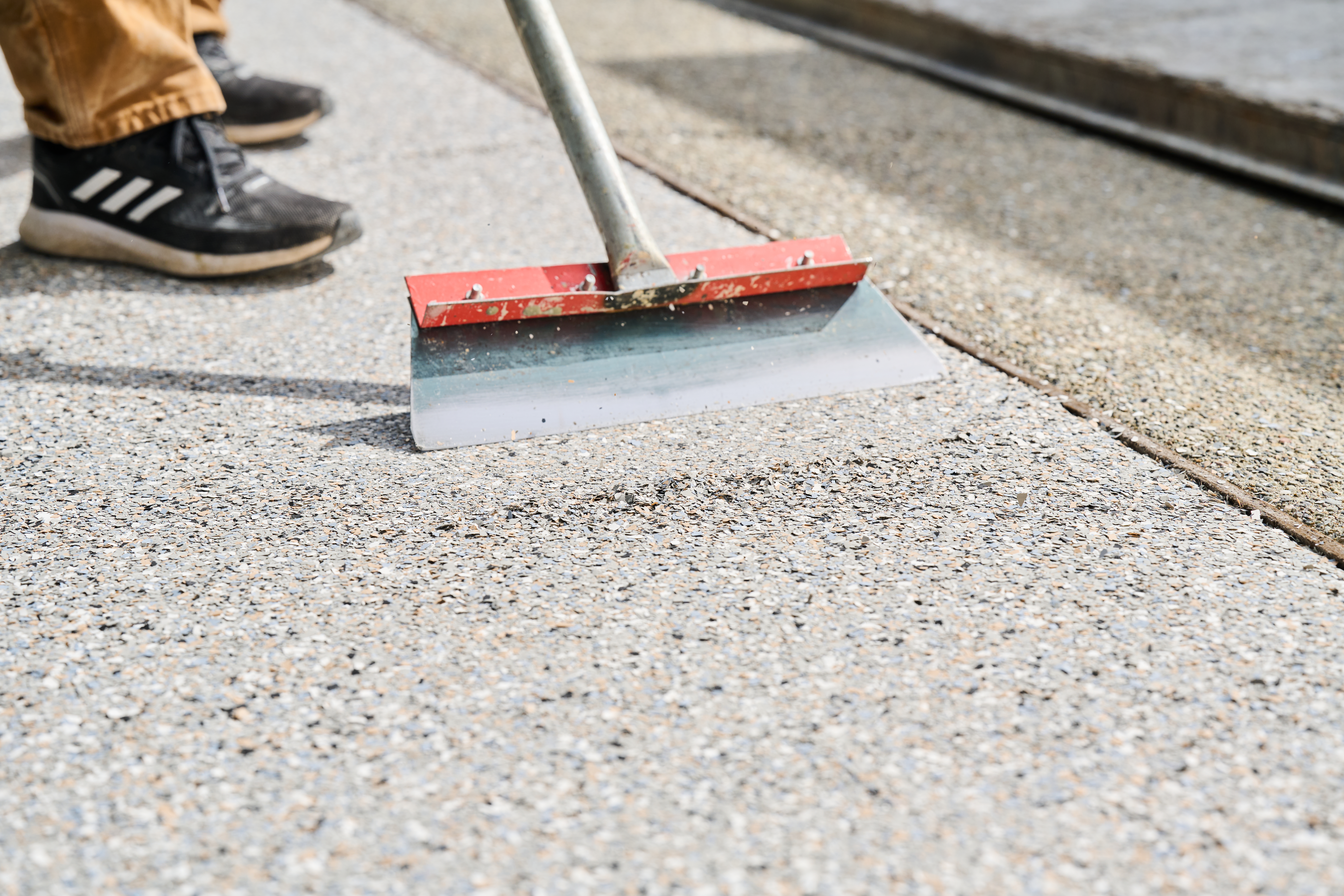
Terrazzo may cost more than many other flooring options, but its longevity and high return on investment make it worthwhile.
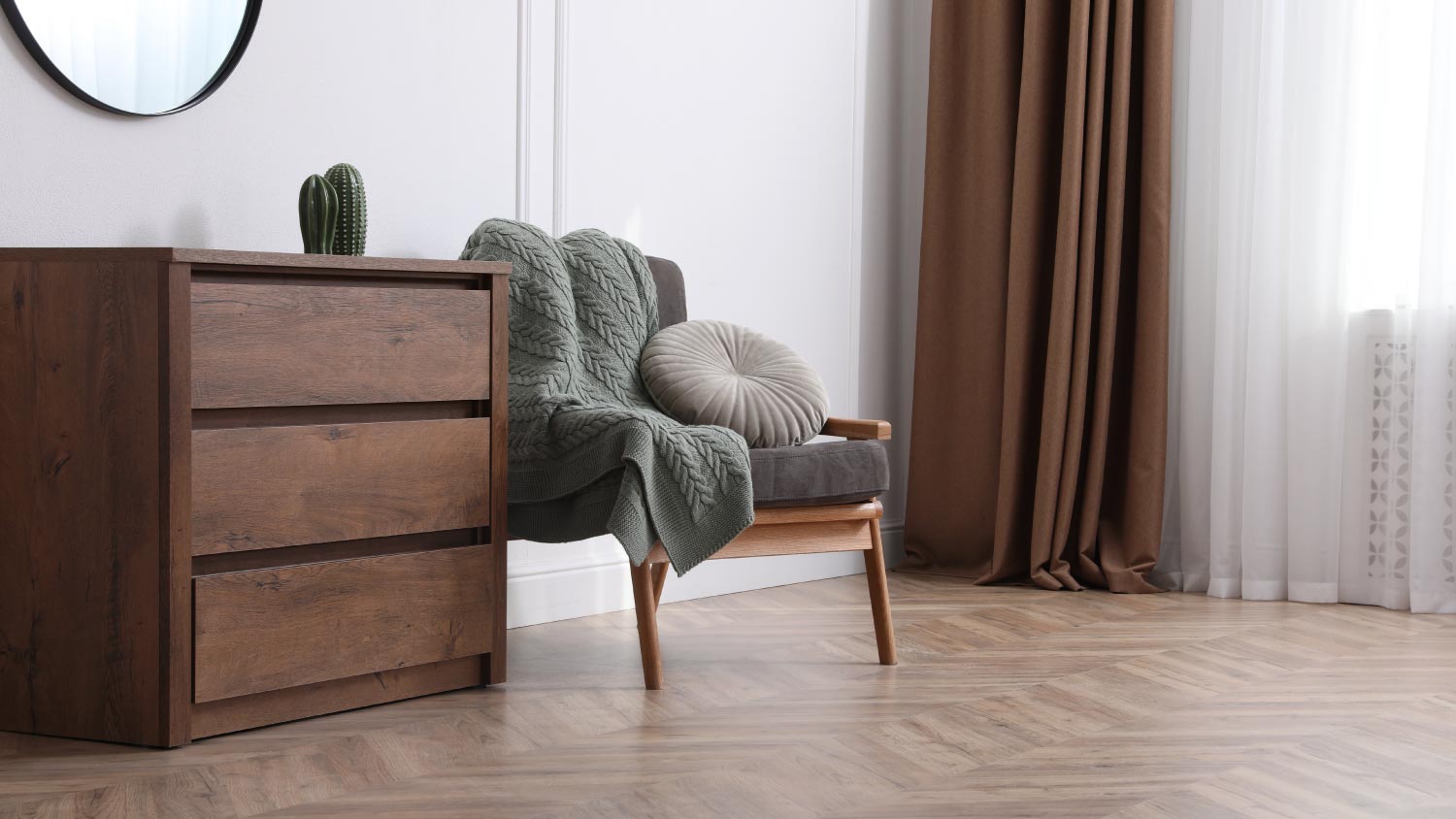
Discover stamped concrete wall cost estimates, including average prices, key cost factors, and tips to help you budget your project with confidence.

Baseboards come in many styles and materials, giving your space a finished look. Learn about the types of baseboards, pros and cons, and when to choose each.

There is more going on with moisture in your concrete than what meets the eye. Get to the bottom of it by testing moisture levels in your concrete floors.
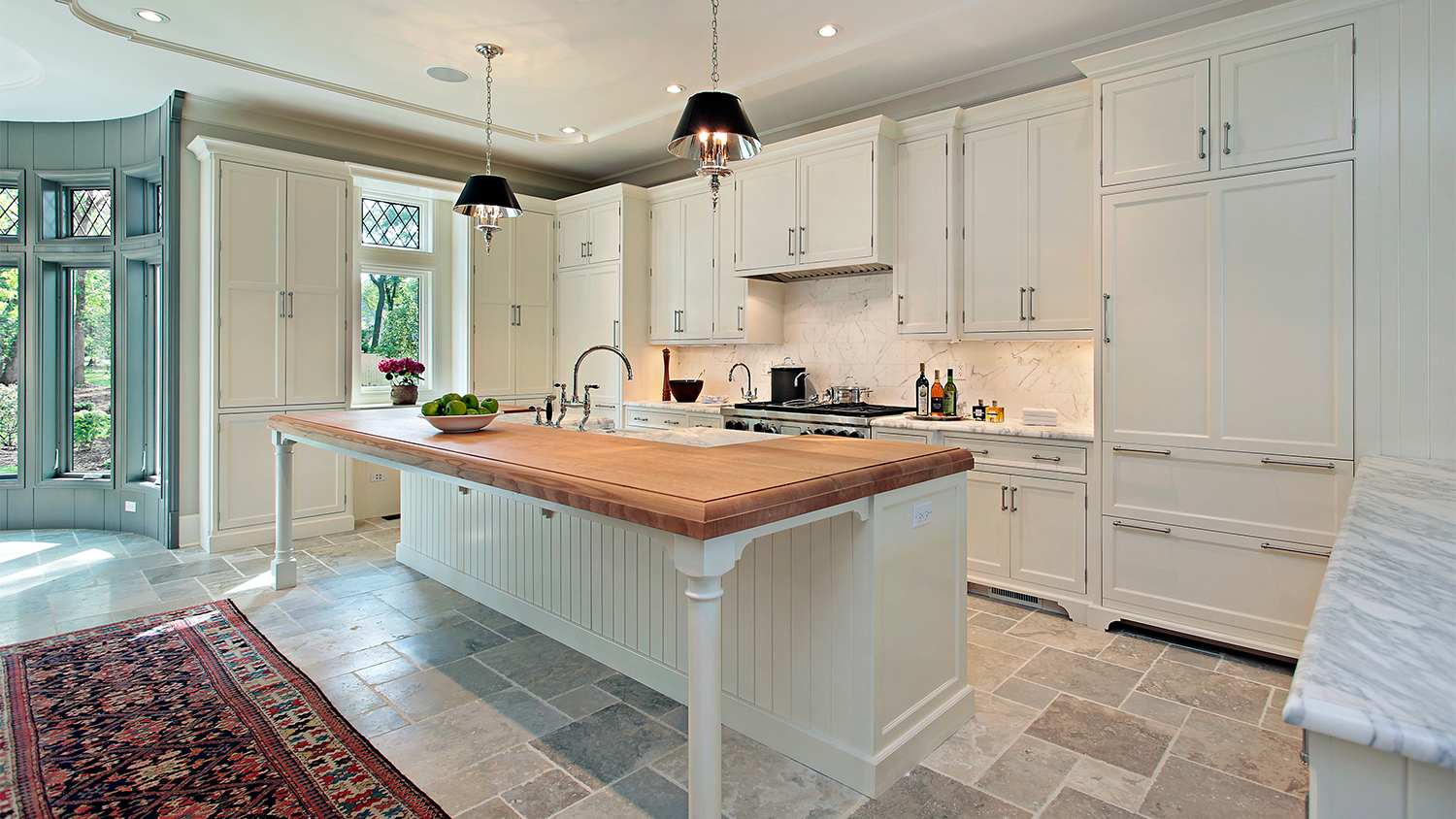
Discover limestone flooring costs for your home. Learn about material, labor, and installation factors to plan your flooring project with confidence.